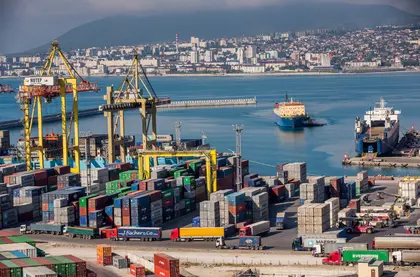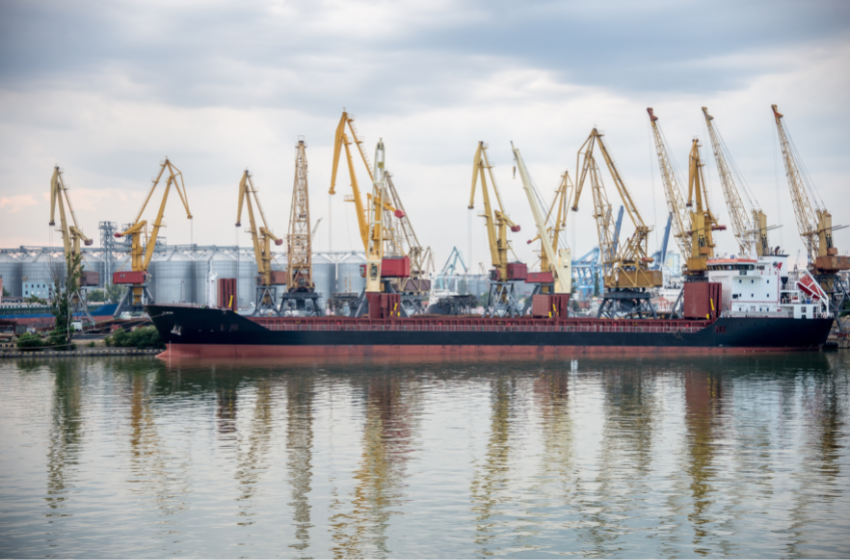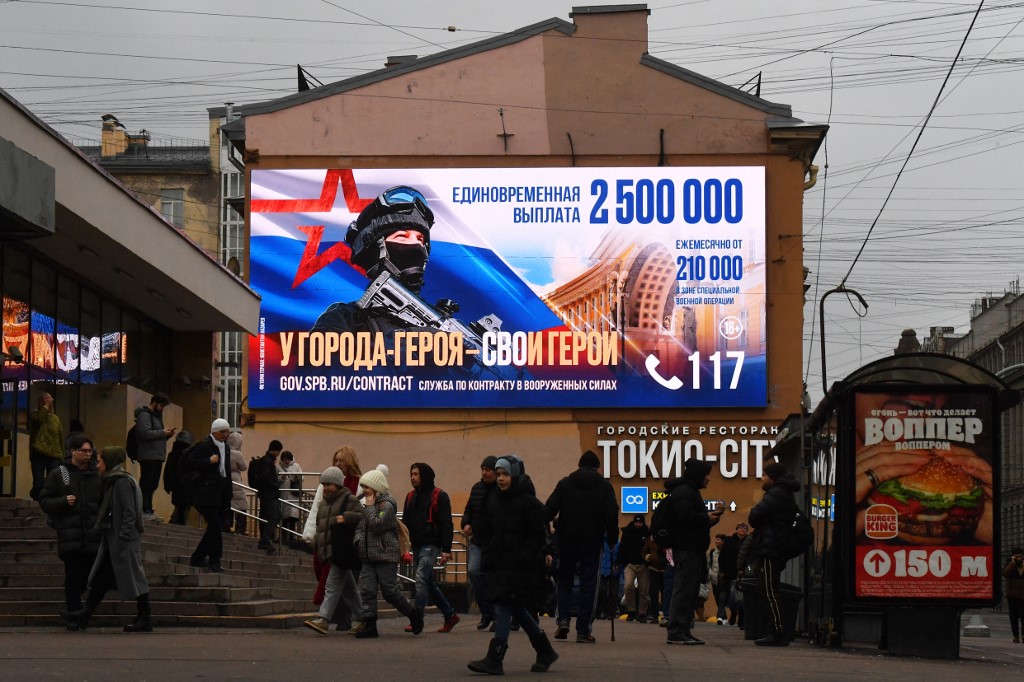For the first time, Odesa was represented as guest of honor at the Medi 2023 (Mediterranean Cities) conference, which took place on 16-17 March in the Italian port city of Livorno. Organized each year by the Community of Sant'Egidio to promote intercultural and interreligious dialogue, Odesa’s inclusion demonstrates recognition of the city’s cultural and economic relations with partner cities around the Mediterranean Sea.
This meeting of minds provides an opportunity to reflect on the past 13 months of Russia’s war in Ukraine and consider the post-war reconstruction of Ukraine’s strategically important Black Sea ports. Russia’s naval blockade of these ports has created serious stress for the entire logistics system, damaged Ukraine’s exports, and contributed to hunger and food insecurity in dependent nations such as Somalia, Kenya and Ethiopia.
JOIN US ON TELEGRAM
Follow our coverage of the war on the @Kyivpost_official.
With that in mind, Kyiv Post interviewed five renowned operators, investors and experts with close ties to Odesa region’s ports, regarding post-war project, infrastructure and investment priorities.
Alexander Kurlyand, President of shipping company UKRFERRY LLC
“The priorities will be to recover the full scope of ports, forwarding and linear shipping activities.
“A post war Ukraine must use opportunities to become a hub for dry-bulk, container and [roll-on, roll-off] ferry shipping in the Black Sea.
“Key priorities will include reconstruction of the Maritime branch of Ukraine as an entire and sustainable structure; more foreign investors cooperating with leading Ukrainian companies; much more active participation of Ukraine in EU transport programs/projects; zero tolerance of corruption; and development of intermodal logistics/railway/eco-friendly transport solutions from Germany to Northern Europe, Poland, the Baltic States, Ukraine, Turkey, Trans Caucasus and Central Asia.”
Andriy Vadatursky, CEO of NIBULON Ltd.
“It is extremely important to bring Ukrainian lands affected by hostilities back into the economy, by undertaking demining and providing technological assistance to farmers.
“These investments will help both to improve farmers’ current situations and counter the global food crisis.
“Please note that the efforts of all interested parties are now aimed at exporting grain from Ukraine that was grown in 2021. However, according to our calculations, in 2023-24, the production drop in Ukraine will reach the size of the import requirement of the whole of North Africa, which is about 30 million tons.”
Rachid Bouda, Managing Director of shipping company MSC Ukraine LLC
“In 2022, the Russian invasion of Ukraine and the blockade of its ports began impeding the flow of goods, fueling cost increases, and creating huge demand for alternative inland transportation.
“From my point of view, unblocking access to Ukraine’s sea ports and restoring normal shipping lanes to allow exporters to access international markets should be a priority for the international community.
“I have been working in Odesa ports for many years and I’m convinced that the ports of post-war Ukraine will need transparent procedures for all state controlling bodies, digitalized processes, and improved connectivity with the hinterland.
“The interconnectivity and integration of Ukrainian railway and road lanes with EU networks by extending European rail gauges within the country and developing logistic and multimodal hubs should also be a priority for Ukraine’s economic recovery.
“A connected Ukraine with EU transport networks and new investments in modern multimodal hubs will upgrade and boost Ukraine’s post-war economy and help the country to shift from a raw materials provider to a manufacturer and exporter of finished products and goods with high value.”
Philipp Grushko, Partner at SD Capital and member of the Board of Directors at P&O Maritime Logistics
“We have all seen how vulnerable the export chain is. When the enemy blocks the sea, all land-routes together can’t make up even 10 percent of Ukraine’s usual export capacity.
“This is a threat, which can be unblocked by developing river ports and upgrading railway connections with Ukraine’s closest Eastern European ports.
“Building new terminals and big railway stations on the borders takes time and significant investment, so this is not an option to solve the current crisis. But it might protect us from further problems.
“Demining the sea will require time and special equipment – but there are drones capable of removing mines from the water. Still, the issue of safety is crucial for insurers and vessel-owners, so we should make it fast and effective.
“Thinking long-term, we believe that renewable energy sources are a reasonable point of investment. Today, renewables in Ukraine are not only about ESG [environmental, social and governance], but also about decentralization and sustainability of our energy system and avoiding blackouts. We are also interested in investing into LNG [liquefied natural gas] terminals, which could not be built before the war due to Russian political lobbyism. There is a hope it won’t be an issue after Ukraine wins.
Arthur Nitsevych, Founding partner of Interlegal Law Firm
“Ukrainian port infrastructure has suffered significant damage and losses. Out 13 Ukrainian sea ports, four are temporarily occupied by Russia, namely: Mariupol, Berdiansk (both on the Azov Sea), Skadovsk and Kherson (both on the Black Sea). All valuable property has most likely already been stolen by the occupiers.
“The largest ports (Mykolaiv, Olvia, Odesa, Chornomorsk and Pivdennyi) remain under Ukrainian control, however, Russia is preventing their full work. Only the Big Odesa regional ports (Odesa, Chornomorsk and Pivdennyi) are operating according to the framework of the Grain Corridor agreement.
“[The situation] has caused great damage to business because, before the war, more than half of all Ukrainian exports and 90 percent of grain exports were transported by sea. The Dnipro River, the main inland water artery of Ukraine, is also blocked in the Kherson and Zaporizhzhia regions. The reform, which launched just before the war and was aimed at restoring inland waterways is, unfortunately, on pause.
“I would stress that one of the main tasks is transport logistics development in the Danube region. This is an alternative way and a window to the world. We face a global task which is to think over the methods of creating long-term cooperation between Europe and Ukraine in logistics and supply chain development. Systematic alternative solutions are required. We also need to think about restoring the shipping industry in Ukraine and how to secure commercial shipping in the Black Sea for all parties. This is greatly connected with geopolitics, of course.
“We need to think about the future right now: we should analyze and work on mistakes; both business entities and governmental bodies should hear one other. We should also think about the development strategy of the maritime industry as a whole and the port industry in particular. Obviously, ports and logistic infrastructure in the Odesa region will be the priority geographical area for investment.”
You can also highlight the text and press Ctrl + Enter




